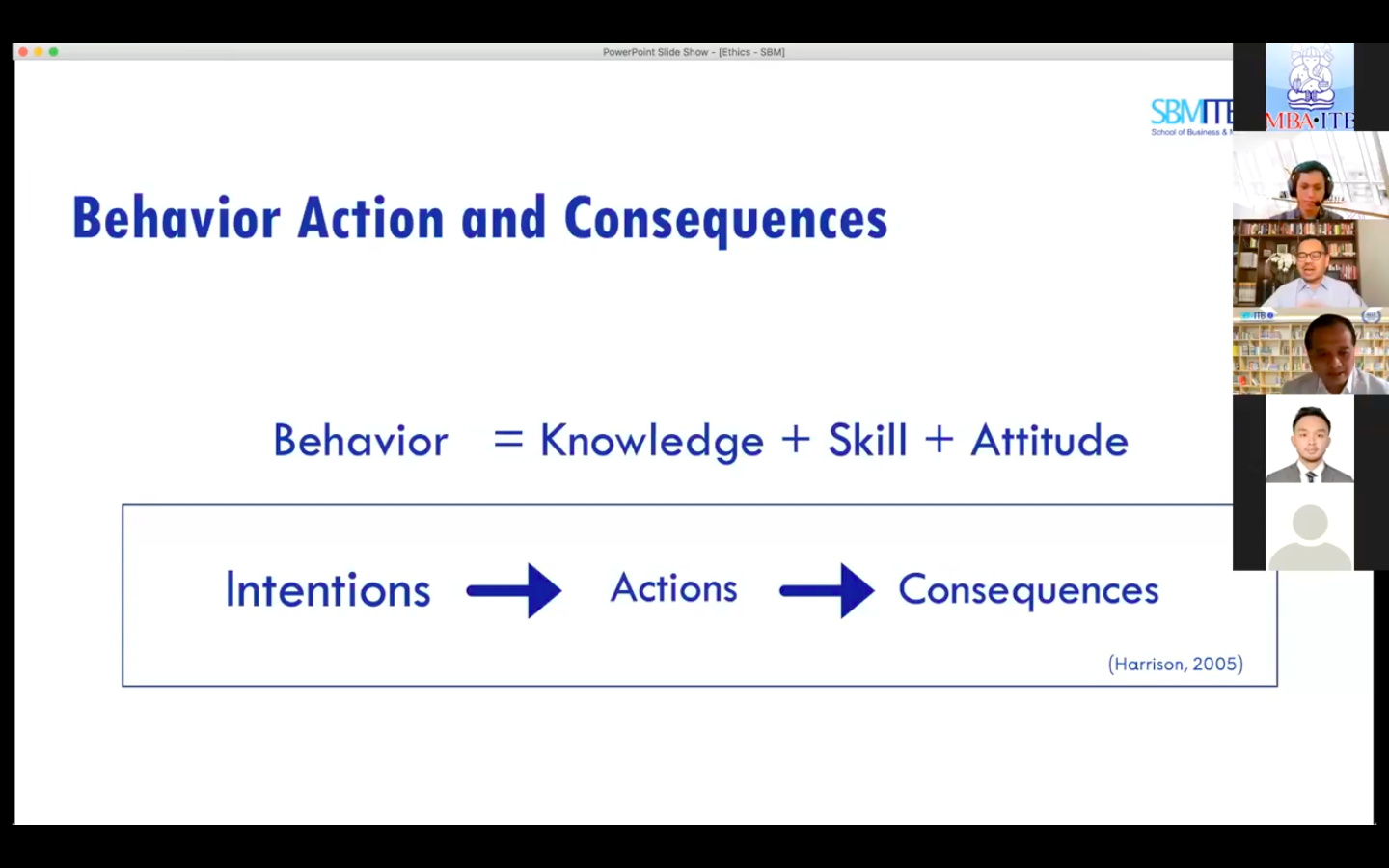Ethics refers not only to an academic discipline but also how human beings should properly live their lives, as said by Sudirman Said, the Former Minister of Energy and Mineral Resources, quoted Harman and Desjardins’ Business Ethics in his lecture to young professionals of MBA ITB, Monday (07/06/2021). In his presentation, he highlighted the importance of behaviors and consequences, moral actions in practice, and some examples often faced by business executives.
First, he recalled the case of PT Garuda Indonesia’s financial statement in 2018, in which, after the revision, Garuda recorded a net loss of US$175,028 million. This report is different from the previous presentation, where it recorded a profit of US$5,018 million. He questioned the ethical issue revolving around the case, which was later concluded as a violation. Though, because of the political affairs involved, the case was then closed. “It crossed the line of ethics,” Sudirman stated.
Sudirman then formulated the requirements of good behavior, that is, an addition of knowledge, skills, and attitudes. “Back to the Garuda case, we can see that the people have the knowledge and skills; however, as they lacked the proper attitude, they had to face the consequences of failing to oblige with the said formula to build a good behavior,” Sudirman said. Therefore, as consequences are responses to the actions coming from the intentions, an initially poor intention may lead to further negative outcomes.
So, how do humans make moral decisions in practice? The basic foundation is recognizing the moral issue, including moral awareness, judgment, sensitivity, and attentiveness. Moral awareness is the ability to recognize and appreciate the ethical implications of a decision. This is the first step one must take to act ethically. Next, the assessment a person makes regarding an action (or inaction), motive, situation, or person concerning criteria of goodness or rightness is referred to as moral judgment. Moral sensitivity is defined as recognizing an existing moral problem and comprehending the moral implications of one’s decisions. Last but not least, moral attentiveness is the ability to be self-aware. The application of all these traits will help individuals to be more ethically responsible.
Sudirman then gave out a few common examples of ethical issues often faced by businesses. For example, in terms of a business relationship with suppliers and other businesses, bribery, discrimination between suppliers, and dishonesty in drawing and keeping existing contracts may exist. These examples may apply to a business relationship with the employees, especially discrimination in hiring and treating employees. “As for the relationship with customers, a business may implement unfair pricing practices and dishonest advertising, which both fall under ethical issues often faced by business executives,” Sudirman noted.

Written by Student Reporter (Mitsal Athaya, Management 2022)




